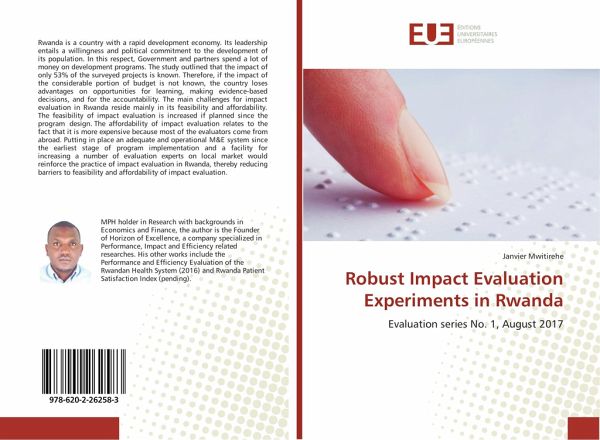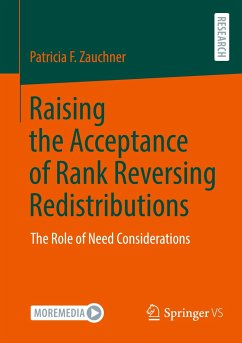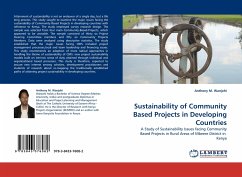
Robust Impact Evaluation Experiments in Rwanda
Evaluation series No. 1, August 2017
Versandkostenfrei!
Versandfertig in 6-10 Tagen
16,99 €
inkl. MwSt.

PAYBACK Punkte
8 °P sammeln!
Rwanda is a country with a rapid development economy. Its leadership entails a willingness and political commitment to the development of its population. In this respect, Government and partners spend a lot of money on development programs. The study outlined that the impact of only 53% of the surveyed projects is known. Therefore, if the impact of the considerable portion of budget is not known, the country loses advantages on opportunities for learning, making evidence-based decisions, and for the accountability. The main challenges for impact evaluation in Rwanda reside mainly in its feasib...
Rwanda is a country with a rapid development economy. Its leadership entails a willingness and political commitment to the development of its population. In this respect, Government and partners spend a lot of money on development programs. The study outlined that the impact of only 53% of the surveyed projects is known. Therefore, if the impact of the considerable portion of budget is not known, the country loses advantages on opportunities for learning, making evidence-based decisions, and for the accountability. The main challenges for impact evaluation in Rwanda reside mainly in its feasibility and affordability. The feasibility of impact evaluation is increased if planned since the program design. The affordability of impact evaluation relates to the fact that it is more expensive because most of the evaluators come from abroad. Putting in place an adequate and operational M&E system since the earliest stage of program implementation and a facility for increasing a number ofevaluation experts on local market would reinforce the practice of impact evaluation in Rwanda, thereby reducing barriers to feasibility and affordability of impact evaluation.












